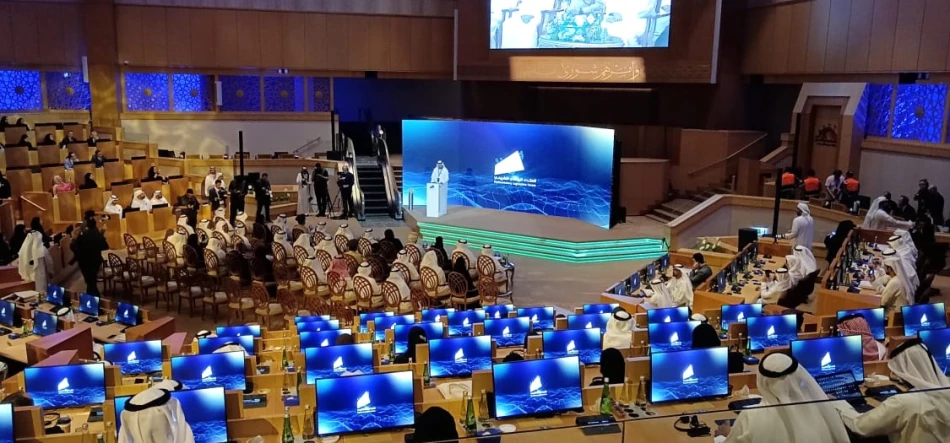
Gulf Cooperation Council Secretary-General Unveils Plans to Boost AI Investments to Hundreds of Billions by 2030
Gulf states are pouring billions into artificial intelligence development, but they're struggling to create unified regulations to govern this rapidly expanding technology. The Gulf Cooperation Council's Secretary-General highlighted this challenge at a major legislative forum, revealing that member countries have already invested tens of billions of dollars in AI and plan to scale up to hundreds of billions by 2030.
Jasim Mohammed Al-Budaiwi told the Parliamentary Legislative Forum on AI Best Practices that artificial intelligence has moved far beyond academic discussions. It now shapes daily decisions, influences entire economies, and changes how people work and communicate. The technology opens up major opportunities in healthcare, education, and government services, but it also creates serious challenges for lawmakers.
"AI has become a core element in our daily lives," Al-Budaiwi said. "It guides decisions, affects economies, and reshapes work patterns and communication between individuals and communities."
The Gulf region is positioning itself as a global AI hub, driven by ambitious economic diversification plans. Countries like Saudi Arabia and the UAE have made AI development central to their Vision 2030 programs, which aim to reduce dependence on oil revenues. These massive investments reflect a strategic shift toward building knowledge-based economies powered by advanced technologies.
But the rapid pace of development has created regulatory gaps. Al-Budaiwi pointed out that Gulf states lack unified legislative standards, face ongoing data protection issues, and worry about AI being used for harmful activities or cyber attacks. This creates uncertainty for businesses and investors who need clear rules to operate across the region.
The GCC has tried to address these challenges by forming specialized teams and partnerships. In June 2021, they created a working group on AI and emerging technologies that focuses on research collaboration and improving government digital services. The group has produced ethics guidelines for AI use, frameworks for public services, and disaster management systems.
They're also working with international organizations like the World Intellectual Property Organization and the International Organization for Standardization. The Saudi-based International Research Centre for AI Ethics is another key partner in developing regional standards.
For investors and tech companies, this regulatory uncertainty presents both risks and opportunities. Clear, consistent rules across Gulf markets could attract more international investment and make it easier to scale AI solutions regionally. But the current patchwork of different national approaches creates compliance headaches and limits market access.
The stakes are significant. McKinsey estimates that AI could contribute up to $320 billion annually to the Middle East economy by 2030. Gulf states want to capture a large share of that value, but they need regulatory frameworks that encourage innovation while protecting citizens' rights and data.
Al-Budaiwi emphasized that balanced legislation could make AI a tool for sustainable development, social justice, and improved government efficiency. The challenge is creating rules that are flexible enough to adapt to rapid technological change but strong enough to prevent misuse.
The Gulf's AI ambitions face competition from established tech hubs in the US, China, and Europe. Success will depend partly on whether the region can create attractive regulatory environments that draw global talent and investment while maintaining security and ethical standards.
Most Viewed News

 Sara Khaled
Sara Khaled






